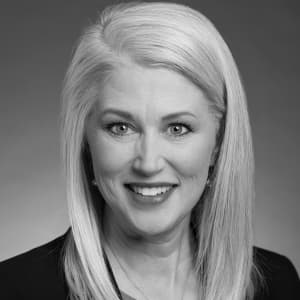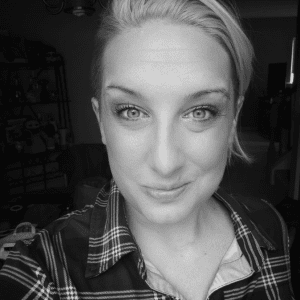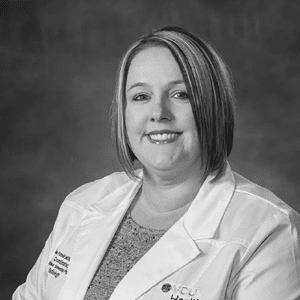Nurse Cancer Survivorship and Its Influence on Care


Oncology nurses serve as the first responders for patients with cancer. But what happens when a healthcare provider becomes the patient?
When a nurse is diagnosed with a serious health condition, their world crumbles before them and they are forced to view their circumstances through a new lens. As they find themselves in uncharted territory, each report, radiation dose, chemotherapy drip, and incision now represents a segment of their personal life.
From a patient’s perspective, having clinical knowledge can have a positive or negative effect. Many nurse survivors come away from their personal journey with a new outlook.
Experiencing the physical, emotional, and spiritual effects of battling cancer themselves, they can relate to the vulnerability patients face and gain a greater sense of compassion and empathy for others on the same path.
We interviewed three nurse cancer survivors: Melanie Bradshaw, MSN, RN; Michelle Futrell, MSN, MBA, RN; and Stephanie Gayhart, BSN, RN. They express their fears and anxieties as they humbly share the events that led up to their diagnosis and treatment plans, including where they are today.
They offer remarkable insight on the unique situation when a nurse is forced to replace their uniform with a patient gown. Read on to hear their stories or click below to see the full interviews.
When a Healthcare Provider Becomes a Healthcare Recipient
Early detection and diagnosis are essential in determining the correct treatment plan. However, cancer screening and diagnosis do not come without challenges.
There are many obstacles that can prevent or delay screening, diagnosis, and treatment. These include lack of symptoms, poor accessibility, patient awareness, healthcare providers’ dismissal, cost, and fear.
Other factors that can potentially delay treatment include false positives, false negatives, underdiagnosis, and overdiagnosis. These variables can affect a patient’s emotional state and increase morbidity and mortality.
Gayhart’s initial clinical sign was “a firm, painful lump” under her jaw. She says, “I never had any ‘typical’ signs of cancer such as weight loss or ulceration or tissue changes on the tumor.”
After a month of visits with dentists and a local specialist who “swore it can’t be cancer,” Gayhart was diagnosed with stage III squamous cell carcinoma of the oral tongue.
Futrell found a “fairly sizable lump” in her left breast. Overwhelmed with worry, she scheduled an appointment with her gynecologist, who performed a breast exam. She was told she was presenting with “age-related changes” and was instructed to follow up with her scheduled annual mammogram nine months later.
After reviewing the mammogram results, the radiologist voiced concern and ordered an ultrasound and biopsy. Futrell was diagnosed with stage II hormone positive/HER2 negative breast cancer.
Bradshaw’s cancer was discovered during a routine mammogram and later measured 8 x 4 x 4.5 cm via MRI. She says, “There was nothing detected during my annual mammogram 12 months prior.”
How Being a Nurse Affects Experiences With a Cancer Diagnosis
When a nurse is diagnosed with cancer, their clinical expertise and educational background can influence their experience. There are pros and cons to having this knowledge and training.
Nurses in the patient role are at an advantage because they understand medical jargon and can identify the procedures, treatments, and outcomes. They can understand the care process, put their knowledge to work, and monitor the quality of their own care.
One of the challenges for nurses as patients is that too much information can cause heightened levels of anxiety and worry, or lead to sheer panic. Nurses may also attempt to manage their own care, leading to exhaustion and burnout.
Bradshaw, Gayhart, and Futrell describe their nursing knowledge as having both favorable and unfavorable consequences.
Bradshaw says, “Having my nursing education was both a blessing and a curse. I had the knowledge necessary to know who to speak to (an oncology nurse navigator) to get the ball rolling.”
However, she says she was not completely familiar with her treatment. “I immersed myself in research. I did my best to become an ‘expert’ and I learned to become my own patient advocate,” she says. She interviewed many physicians to determine the best fit for her.
–Melanie Bradshaw, BA, MSN, RN
“However, I also felt at times that I ‘knew too much’ which caused my mind to race to some of the worst-case scenarios,” she continues. “I found that it increased my anxiety.”
Gayhart describes her nursing expertise as a “double-edged sword in this whole process.” She states, “I knew in my gut something was very wrong, but I also didn’t want to come across as ‘that nurse’ or ‘that patient’ telling the doctors what was wrong with my own body.”
She says her nursing background prepared her for the treatment plan but feels that “ignorance can sometimes be blissful.”
“I panicked a lot about waking up with a trach and how that would feel,” Gayhart says.
Futrell often questions why she didn’t request a mammogram sooner and self-advocate. She says, “So, that has been a bit difficult for me to work through.”
“There was an aspect of being a nurse that made my experience more difficult, and that was because when it came to cancer patients, I had really only ever worked with worst-case scenarios,” she continues. “When I was in nursing school, I worked as a patient care tech on an inpatient oncology unit and upon graduation worked in the emergency department. So, I didn’t really see a lot of survivors.”
The Challenges of Returning to the Bedside
Cancer is a traumatic, complex illness that affects your physical, mental, and emotional states. Returning to a healthcare professional role can be intimidating.
Challenges nurse survivors may encounter include:
- Post-traumatic stress disorder (PTSD)
- Physical demands with fatigue and physical limitations
- Mental demands with memory loss
- Emotional and psychological issues
- Social issues and lack of confidence
- Difficulty working in an oncology environment
Gayhart and Bradshaw both developed PTSD.
Gayhart was a critical care bedside nurse for eight years at diagnosis and cared for patients with tracheostomies. When her trach plugged one night she described it as, “the scariest moment losing all control.”
When she later visited a friend who was intubated, Gayhart panicked and walked out of the room crying when the nurse suctioned him.
–Stephanie Gayhart, BSN, RN
Gayhart also describes having physical limitations that prevented her from returning to bedside nursing. Thankfully, the healthcare industry is full of career options that do not require as much physical activity.
Futrell found it difficult going back to work as a lung cancer screening coordinator. She felt like she was “surrounded by cancer” and “felt like running away sometimes.”
She would sit at her desk and think, “I hate cancer.” She thought about changing jobs but realized she wanted to face her fear head on and chose to put her faith in God.
Advice for Returning to Care
Receiving clearance to return to work is a major leap forward in your recovery. You can set yourself up for success by developing a plan and setting realistic expectations.
Some tips to help guide you through the transition back to the workplace include:
Stay in touch with coworkers during your treatment or recovery. They will be more at ease when you return.
Get dressed every day as if you were going to work and perform tasks and activities.
Be prepared to talk about your cancer. Writing it down and practicing saying it may help.
Return to work at a realistic pace. You may experience fatigue or physical limitations.
Cancer-related brain fog may be a short-term or long-term effect. Try to focus, concentrate, and pay attention. Take breaks when necessary.
Communicate with others about your abilities and restrictions. Accept help if you need it.
How Cancer Influences One’s Approach to Care
The journey of nurse cancer survivorship will influence one’s approach to patient care. Nurse survivors gain a new perspective that stresses compassion, advocacy, and respect for patients’ input.
While individuals choose the nursing profession for many reasons, compassion is often a common one. Having traveled the path of diagnosis, testing, and treatment while hurdling the obstacles of anxiety and fear, nurse survivors desire to help other cancer patients.
Futrell, Bradshaw, and Gayhart have a greater sense of empathy, compassion, and understanding of their patients’ needs, which they use to serve as community advocates.
When her oncology patients express anxiety and worry about follow-up testing postscreening, Futrell says, “It hits me in my heart in a way that it never had before because it takes me back to the agonizing feeling waiting for the results.”
She shares her story with them to show that she understands their position.
–Michelle Futrell, MSN, MBA, RN
Having “PTSD-like symptoms and a flurry of emotions” after “four feet of incisions and facing a life-threatening diagnosis,” Bradshaw now works in a level 2 trauma center, where she “is focused on preventing traumatic injury and providing support to trauma survivors as they navigate recovery.” She wants to further develop a program for patients.
“First, we need to trust our patients more and anticipate their needs. Had I not been overlooked multiple times before getting the scan that showed the mass, I may have avoided getting to stage III before surgery,” says Gayhart.
Gayhart offers another instance of when her concerns were dismissed. “Before my trach was plugged, I kept telling the nurses something felt wrong and I couldn’t breathe right, and they listened to my lungs, said I was fine, and that was that.”
Gayhart’s hospital stay presented some additional challenges. She developed an ulcer due to lack of repositioning and had to call twice for pain medication that she didn’t receive for over an hour.
She says, “It definitely opened my eyes to how we treat patients when we think we know more than them.”
Care for Caregivers
The nursing profession is demanding and emphasizes caring for others. As a result, nurses often let nursing self-care fall to the wayside and neglect the three key elements to healthy living. Nurses must nurture their physical, mental, and spiritual well-being so they can be the best version of themselves.
Bradshaw quotes the common phrase heard during air travel: “Put your oxygen mask on before assisting others with their masks.” It is a simple yet critical action. As nurses, we cannot help others if we ourselves are gasping for air.
–Melanie Bradshaw, BA, MSN, RN
Nurses can tend to their mental, physical, and spiritual health by finding their passion and setting goals. Other positive habits include maintaining an exercise routine, eating healthy foods, meditating, and scheduling preventative screening and appointments.
Futrell emphasizes the importance of self-advocacy, saying, “If I had gone for my mammogram in May of 2018 after the first visit, it may not have spread to my lymph node.”
Bradshaw says, “I have had to make a shift in putting myself first and advocating for my own mental and physical health needs, something I wasn’t quick to do before.”
Gayhart states, “I think we need to realize that if we don’t take care of our own health first and foremost, we will lose the ability to do all of those things we do in daily life, including caring for others.”
Meet Our Contributors

Melanie Bradshaw, MSN, RN
Melanie Bradshaw is a registered nurse who lives in the Houston, Texas area. She holds a bachelor’s degree in speech communication and a master’s degree in nursing leadership and management. The majority of her nursing career has been at the bedside, in labor and delivery and emergency nursing. Bradshaw now works at a level 2 trauma center in community outreach and education, where she provides trauma survivors with support during their recovery.

Stephanie Gayhart, BSN, RN
Stephanie Gayhart is a nurse educator and student at the Ohio State University College of Nursing’s Master in Healthcare Innovation program. After eight years working at the bedside in critical care, she was diagnosed with stage III oral squamous cell carcinoma of the tongue and underwent radical surgery and radiation in 2019.
Gayhart volunteers for the National Coalition for Cancer Survivorship Cancer Policy and Advocacy Team, participates in the Ulman Foundation GameChangers program, and runs a Facebook group for young adult cancer survivors. She is also a volunteer for The Young Tongues, an online support group for young adults affected by tongue cancer.

Michelle Futrell, MSN, MBA, RN
Michelle Futrell has been a nurse for 13 years and currently works as the lung cancer coordinator at the VCU Health System and Massey Cancer Center in Richmond, Virginia. In her role as coordinator, she manages the operations for the lung screening program and navigates patients through the screening process. Futrell has nursing experience in the emergency department and as an administrative supervisor.
She earned a dual degree (MSN/MBA) from Grand Canyon University and a BSN from South University. Futrell is also a certified emergency nurse.